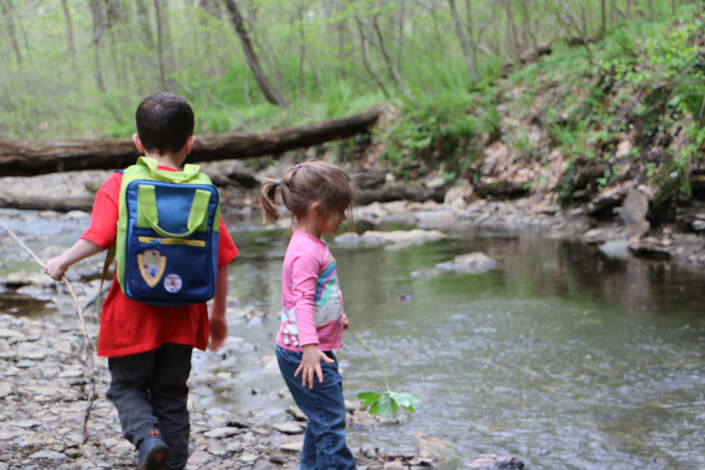|
In the first few weeks of Year 3 of homeschooling, I decided to start an annotated bibliography of sorts to document the reading I have been doing on educational philosophy and theory and how it connects to our practice of home education. This series is inspired by the annotated bibliography I assign to my master's students in art education and the desire to develop a thoughtful and intentional homeschool practice. Like any homeschooling parent, I’ve done a lot of thinking about how I want my children to be educated. I made the decision after a conversation with another mom, whose children were all assigned tablets in early elementary. This family attended a public-school system that is one of the highest ranked in the state, and by all accounts a diverse, rigorous school. However, the idea of 1 to 1 technology in the early elementary years on top of the assessment beginning in kindergarten (isn’t that what kindergarten readiness really is?) pushed my decision into a definite yes.  On a good homeschool day, we spend a good chunk of the day outside or in the community. This day, we went on a hike after reading about Louis and Clark and spent time noticing the wildlife and documenting them by drawing or pressing them, and describing where it was found in a travel journal we made specifically for this "expedition." I had been considering homeschool for a while. I liked the idea of tailoring our school to the community engaged projects and research travels both my husband and I do for work. I have been thinking a lot about the boundaries between home and work, private and public lives. And, honestly, I wanted a flexible schedule that focuses on time together rather than running around from activity to activity. But, the more I learned about the effects of technology on children (mostly anecdotally from middle school and high school teacher friends), developmentally appropriate content and expectations, and the sheer volume of assessment mandated by federal requirements, I wanted to have more control over how my children learn to learn.
So far, I have not purchased curriculum. Instead, I utilize the Common Core grade standards to create a loose plan of study for the year. In this particular phase of life, our family is moving frequently, so I find this to be an easy way to communicate our educational standards and meet district and state requirements. Rather than looking at the standards to assess children’s learning, I use them to identify areas of study used to build on a set of educational values I hope to instill in my children. While content is important, my focus is on making sure they have the skills they need to learn, work, and thrive in community. The set of values that all our activities work to build include:
I plan to document some of what we do in our homeschool as well as the pedagogy supporting it this year. I have tasked myself to read more educational philosophy this year to support and give voice to my educational instincts. What I have found is that everyone is homeschooling for a different reason: some religious, some behavioral, some educational, some cultural, feelings about technology, environment, assessment, the list goes on and on. And the caretakers now responsible for educating their child(ren) have so many different feelings about their capabilities and approach. With the proliferation of blogs and books and podcasts and training and personal consultants, you can find anything that justifies whatever situation you find yourself in that day. I don’t particularly want to add to this, but writing these posts helps me to focus my practice. I want to educate my children in a thoughtful, responsible way, taking mindful steps forward in learning how to learn together with my children.
0 Comments
Leave a Reply. |
Ruth M. SmithCommunity arts educator and researcher. Drinking coffee. Home educating. Making art. Listening intentionally. Categories
All
Archives
February 2022
|
 RSS Feed
RSS Feed
